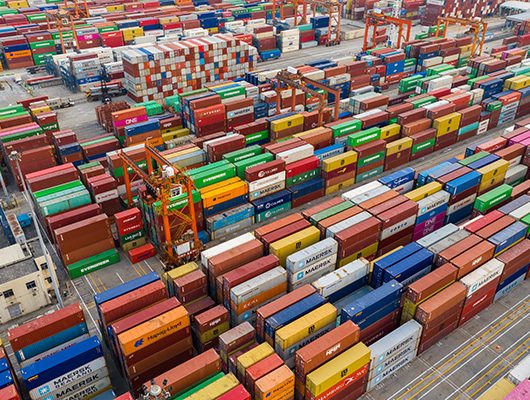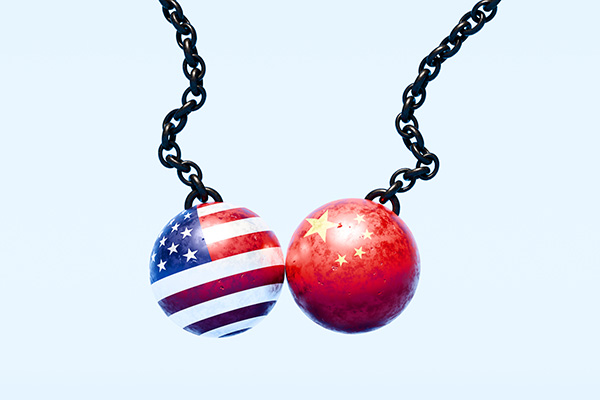Donald Trump’s recent decision to impose reciprocal tariffs has generated high expectations and concerns in the markets. According to Max Stainton, Global Macroeconomic Strategist at Fidelity International, if the tariffs are implemented as announced, the United States could face a “traumatic shock of stagflation,” with serious consequences for its economy and global trade. This scenario raises questions about the impact of trade policies and the potential repercussions for investments.
Impact of tariffs on the US economy
On April 2, Trump announced a significant increase in tariffs, bringing effective rates to levels not seen since the early 20th century. If implemented permanently, the tariffs could push US inflation to 3.5% by the summer, affecting consumer spending and investment. Stainton warns that, although some adjustments could be negotiated, uncertainty over tariffs will keep investor confidence under pressure.
This type of tariff increase could not only slow economic growth in the US, but also create a scenario of stagflation, a combination of high inflation and low economic growth. In the worst case, if tariffs exceed 20%, there is a risk of entering a cyclical recession.
What would happen if there were retaliatory measures?
The situation could worsen if trading powers such as China or the European Union decide to respond with tariffs of their own. This would further affect US economic growth, but could also moderate inflation. In this context, negotiations to seek exemptions or adjust tariffs could reduce the negative effects, although uncertainty would continue to affect the economic outlook.

Regarding the impact of Trump’s policies on the Federal Reserve, Stainton notes that the possibility of interest rate cuts remains uncertain. If the US economy enters a recession, the Federal Reserve could be forced to cut rates reactively, creating further tensions in global financial markets.
Challenges for investments
In terms of asset allocation, Fidelity managers are taking a cautious approach. Although the economic cycle has been driven by US consumption, growing uncertainty calls for an agile strategy. Equity markets and high-yield assets, for example, could face headwinds due to the uncertainty created by tariffs.
One of Fidelity’s recommendations is to focus on low-volatility stocks and sectors with above-average growth prospects, as well as inflation-indexed bonds and gold, as a way to protect against stagflation. These investment strategies could be key to navigating the volatility ahead.
Outlook
Looking ahead, the outlook for 2025 is pessimistic. U.S. economic growth is expected to remain low, with inflation likely to exceed 3%. This could create a challenging economic environment for investors and business professionals, who will need to be prepared to manage global uncertainty and the implications of trade policies.
Continue your professional training
In a global context marked by trade tensions, understanding the Asian market is key. With our Master in Strategic Management with a specialty in Management, you will develop a strategic vision to face these challenges. Learn more about the program and boost your career.
Source: Fidelity: The US will suffer “a traumatic shock of stagflation” if it applies tariffs

